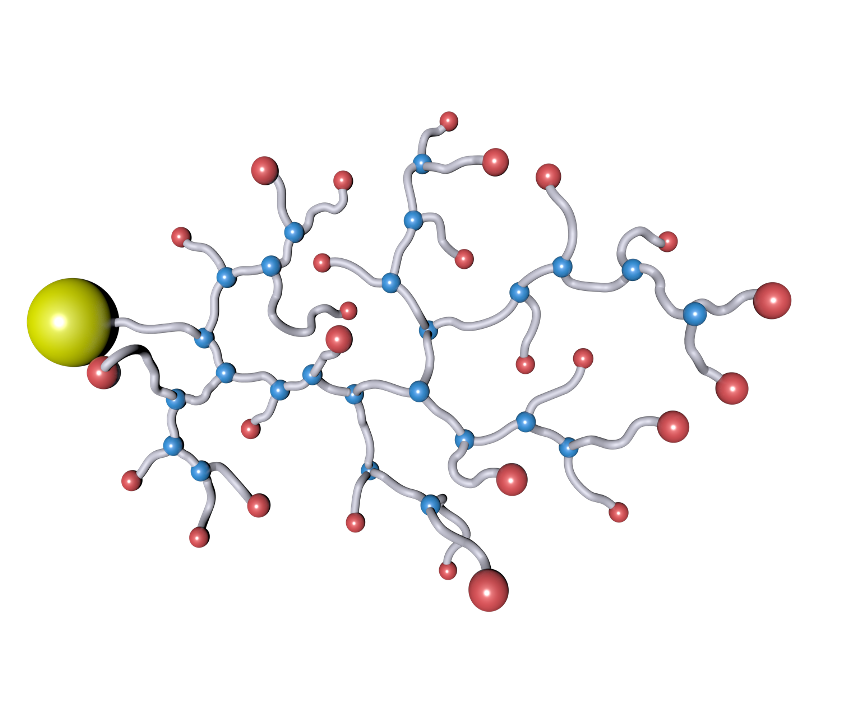Harnessing the Power of Polymers: Recognizing the Substantial Uses and Positive Influences
Polymers, with their diverse chemical structures and residential properties, have become crucial in many sectors, reinventing the way we interact with products on a daily basis. From the product packaging that safeguards our food to the fibers that dress us, the applications of polymers are vast and differed. Beyond their common presence lies a much deeper understanding of their favorable impacts, getting to far past mere ease. As we explore the considerable uses of polymers and their duty in shaping a much more lasting, efficient, and cutting-edge future, it becomes obvious that their potential is as vast as the particles themselves.
Versatility in Everyday Products
Polymers exhibit impressive versatility in a broad range of day-to-day items, showing their crucial role in modern society. From the flexible plastic case of smart devices to the long lasting fibers in garments, polymers have transformed the method we engage with items in our every day lives. One of one of the most usual uses polymers is in packaging materials. Polyethylene, for instance, is extensively utilized in food product packaging due to its light-weight, resilient, and moisture-resistant homes. In addition, polymers play an essential duty in the vehicle market, where they are made use of in producing lightweight parts that improve gas efficiency.
Moreover, polymers have located their method into the medical care field, with applications ranging from medical tools to medicine distribution systems. For example, eco-friendly polymers are made use of in sutures and implants, lowering the threat of adverse responses in clients (Polymers). In the building market, polymers are incorporated right into paints, adhesives, and insulation materials, improving resilience and power efficiency. On the whole, the adaptability of polymers in daily items underscores their importance in driving advancement and boosting high quality of life.
Sustainability in Product Innovations
With the continuous emphasis on ecological awareness and source effectiveness, the emphasis shifts in the direction of sustainability in material technologies, mirroring a growing dedication to accountable manufacturing methods throughout various industries. In recent times, there has been a significant surge in the growth of sustainable materials, especially within the realm of polymers. These innovative products are developed to reduce ecological effect throughout their entire lifecycle-- from sourcing raw products to disposal or recycling.
One substantial facet of sustainability in material innovations is the concept of biodegradability. Biodegradable polymers have actually garnered focus for their ability to break down normally right into safe results, decreasing waste and air pollution. Additionally, using recycled polymers acquired from post-consumer or post-industrial resources is obtaining traction as a way of promoting a round economic climate and lowering reliance on virgin materials.

Enhancing Performance in Design
Enhancing efficiency in design needs a precise assimilation of innovative innovations and precise techniques to optimize capability and effectiveness in different industrial applications. Polymers play a vital role in this venture, supplying a vast range of advantages that enhance the efficiency of design materials and parts.
One trick aspect of improving efficiency in engineering is the ability of polymers to improve sturdiness and strength. By integrating polymers right into design styles, manufacturers can develop lightweight yet robust frameworks that can stand up to high levels of stress and anxiety and stress. This particular is particularly beneficial in industries such as aerospace, vehicle, and building and construction, where the click here now need for strong yet light-weight materials is extremely important.
In addition, polymers can additionally enhance efficiency by offering thermal and chemical resistance, minimizing rubbing, and improving electrical conductivity. These homes make polymers optimal for a vast range of design applications, including seals, bearings, coatings, and electronic components. Polymers. By taking advantage of the unique buildings of polymers, engineers can maximize the efficiency of their designs and develop much more reliable and trusted items
Effect On Clinical Improvements
The combination of sophisticated polymer modern technologies has substantially added to advanced developments in the medical area. Polymers have actually played a crucial role in contemporary medical developments, varying from medicine delivery systems to tissue engineering. One of the key locations where polymers have actually made a considerable influence is in the development of eco-friendly stitches and implants. These polymers can be tailored to degrade at a certain rate, enabling far better injury recovery and minimizing the requirement for extra surgical treatments to get rid of implants.
In addition, polymer-based products are significantly being made use of in clinical tools such as catheters, stents, and prosthetics due to their biocompatibility and flexibility. Polymer coatings on clinical gadgets can stop infections and boost overall person end results - Polymers. In addition, developments in nanomedicine have enabled the use of polymer nanoparticles for targeted medicine delivery, improving the effectiveness and minimizing adverse effects of numerous drugs
Duty in Environmental Conservation

Additionally, polymers are used in water treatment processes, aiding in the filtration and recycling of water resources. This helps in reducing water air pollution and making certain access to tidy water for both human intake and ecological wellness. Polymers also contribute in farming via the advancement of biodegradable composts and this hyperlink controlled-release plant foods, advertising sustainable farming methods.
Verdict
In final thought, polymers have actually confirmed to be a flexible and essential material in different markets, from daily products to engineering and medical improvements. Comprehending the considerable uses of polymers emphasizes their importance in driving development and development in numerous areas.